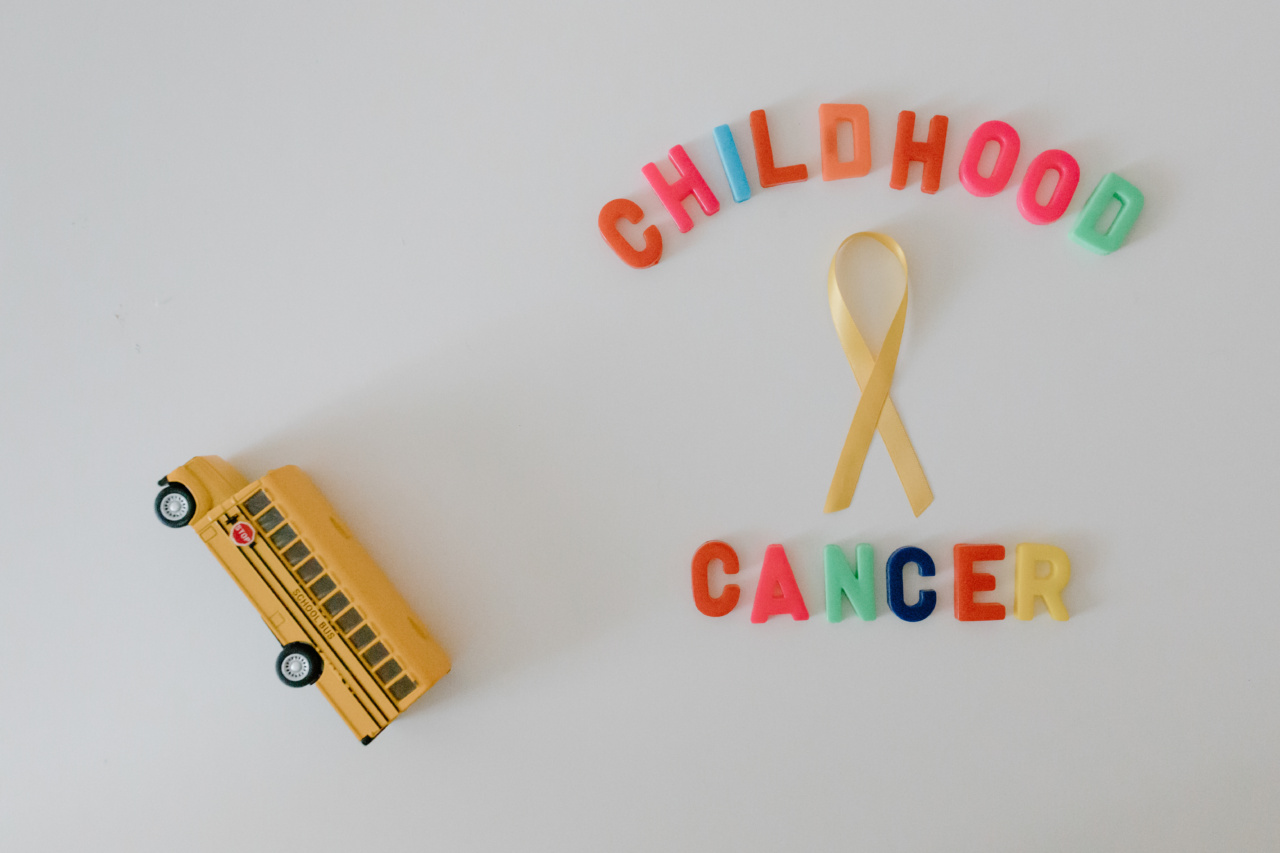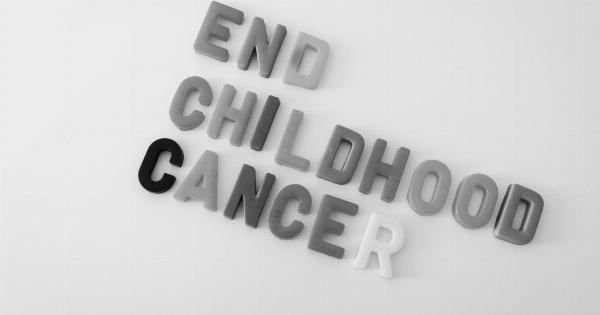Childhood cancer is a devastating reality that affects families around the world. In recent years, there has been a concerning spike in the number of children battling cancer in the UK.
The reasons behind this alarming increase are multifactorial and require urgent attention from healthcare providers, researchers, and policymakers.
The rising trend of childhood cancer
The statistics speak for themselves – the number of children diagnosed with cancer in the UK continues to rise. According to recent data, there has been a 40% increase in childhood cancer cases over the past two decades.
This disturbing trend demands further investigation and efforts to better understand the contributing factors.
Possible causes and risk factors
Although the exact reasons for the spike in childhood cancer cases are not yet fully understood, several potential causes and risk factors have been identified. These include:.
1. Genetic predisposition: Some children may have inherited genetic mutations that increase their susceptibility to developing cancer at a young age.
2. Environmental factors: Exposure to certain environmental pollutants, such as radiation, chemicals, and air pollution, has been linked to an increased risk of childhood cancer.
3. Lifestyle and parental factors: Maternal smoking during pregnancy, parental exposure to tobacco smoke, and certain lifestyle choices, such as an unhealthy diet and lack of physical activity, may contribute to the development of cancer in children.
4. Infections and immune system disorders: Certain infections and immune system disorders have been associated with an elevated risk of childhood cancer.
Impact on children and families
The consequences of childhood cancer extend beyond the physical challenges faced by young patients. The emotional and psychological toll on children and their families cannot be underestimated.
Battling cancer at such a tender age often disrupts normal childhood experiences, including education, socialization, and overall well-being.
Furthermore, the financial burden of childhood cancer can be overwhelming for families. The cost of treatments, medications, and necessary support services can create significant strain, potentially leading to long-term financial difficulties.
Improving outcomes through research and treatment advancements
Despite the concerning increase in childhood cancer cases, there is some hope on the horizon. Researchers and healthcare professionals are working tirelessly to improve diagnosis, treatment, and long-term outcomes for these young patients.
Advancements in precision medicine and targeted therapies have shown promise in treating specific types of childhood cancers more effectively.
Additionally, clinical trials and collaborative research efforts are exploring new treatment options and identifying potential preventive measures.
The importance of early detection and intervention
Early detection and intervention are crucial for better outcomes in childhood cancer cases. It is essential for healthcare providers and parents to be vigilant about any unusual symptoms or signs that may indicate a potential health concern.
Regular screenings and check-ups can help identify any abnormalities at an early stage, enabling prompt medical attention and intervention.
Education and awareness campaigns aimed at both parents and healthcare professionals play a vital role in ensuring timely diagnoses.
Supporting families and raising awareness
Support systems and resources for families with children battling cancer are paramount. These families require emotional, financial, and psychological support throughout their journey.
Charitable organizations, community initiatives, and government programs all have a crucial role to play in ensuring that families receive the necessary assistance and care they need.
Raising awareness about childhood cancer is equally important. Public education campaigns can help dispel myths, highlight early warning signs, and encourage funding for research.
The urgent need for policy changes
Addressing the increasing number of children battling cancer in the UK requires comprehensive policy changes.
Governments must prioritize funding for childhood cancer research, improve access to quality healthcare services, and develop initiatives that focus on prevention and early detection.
Moreover, stricter regulations and environmental policies need to be put in place to minimize children’s exposure to potential carcinogens.
Collaborative efforts between healthcare providers, researchers, policymakers, and communities are critical in achieving these necessary changes.
Conclusion
The spike in the number of children battling cancer in the UK is an alarming trend that demands urgent attention.
Identifying the causes, implementing preventive measures, and improving treatment options are essential for reversing this distressing trajectory. By prioritizing research, early detection, awareness, and comprehensive support systems, we can work towards a future where no child has to face the harsh realities of cancer.























